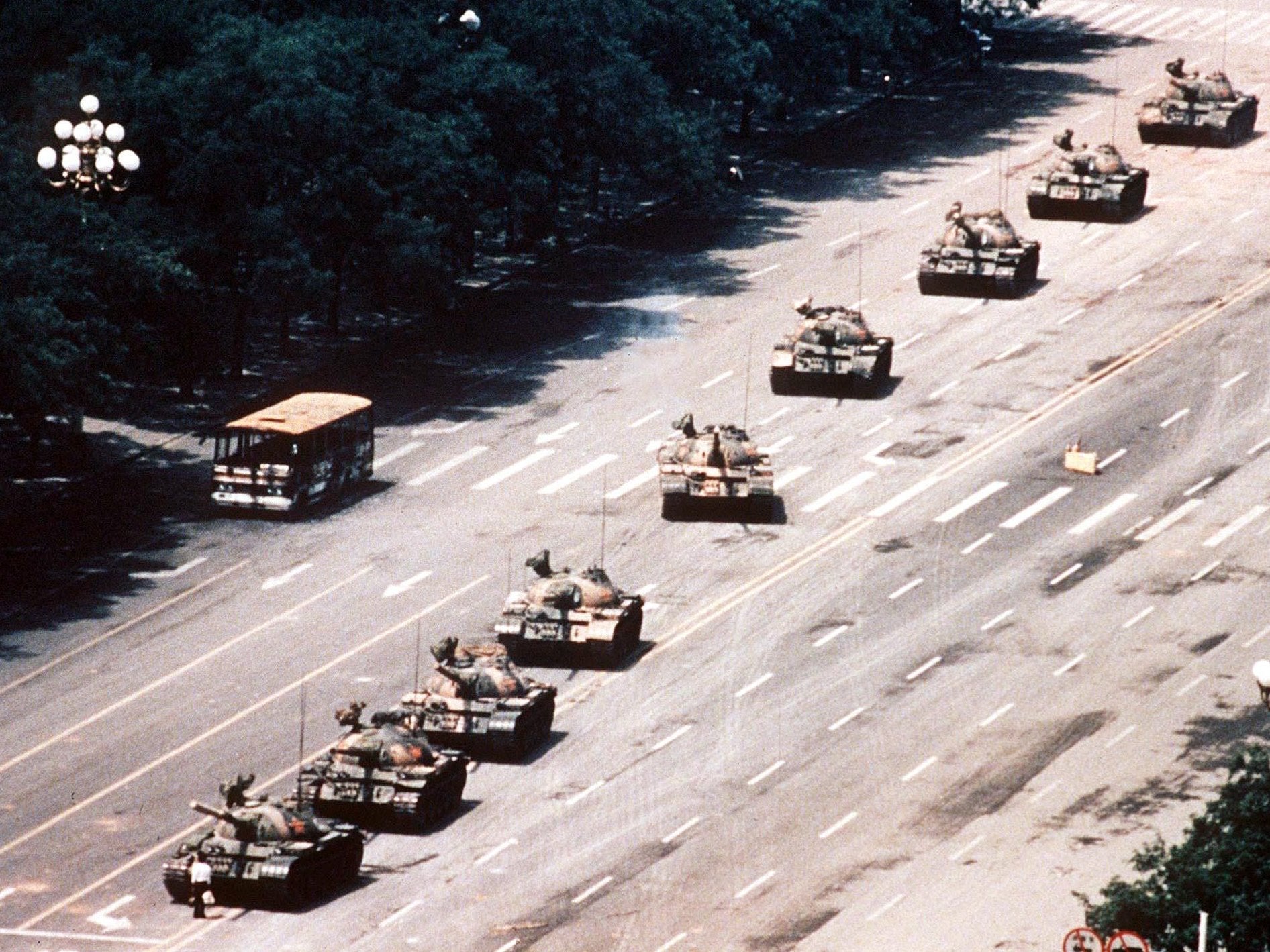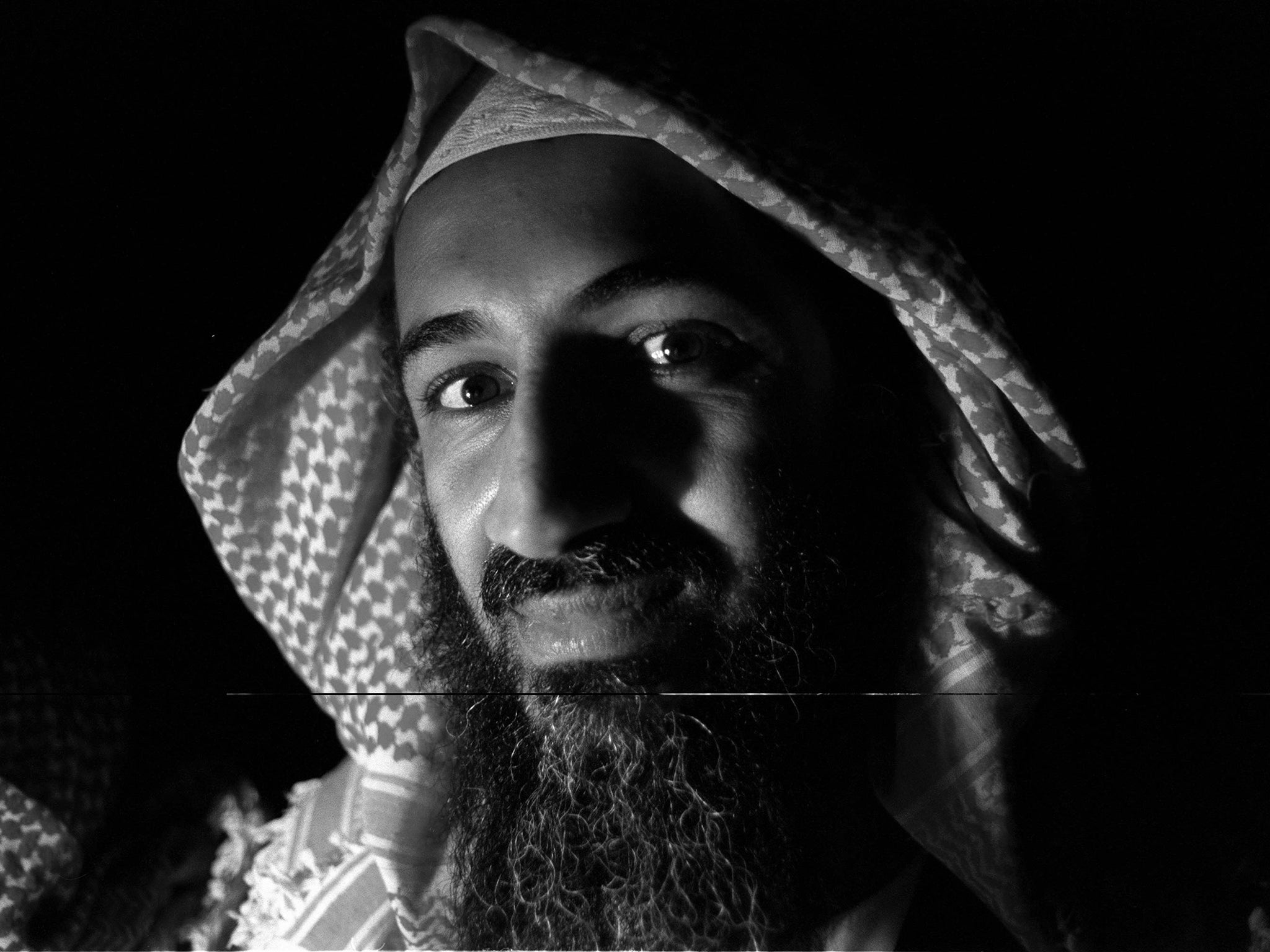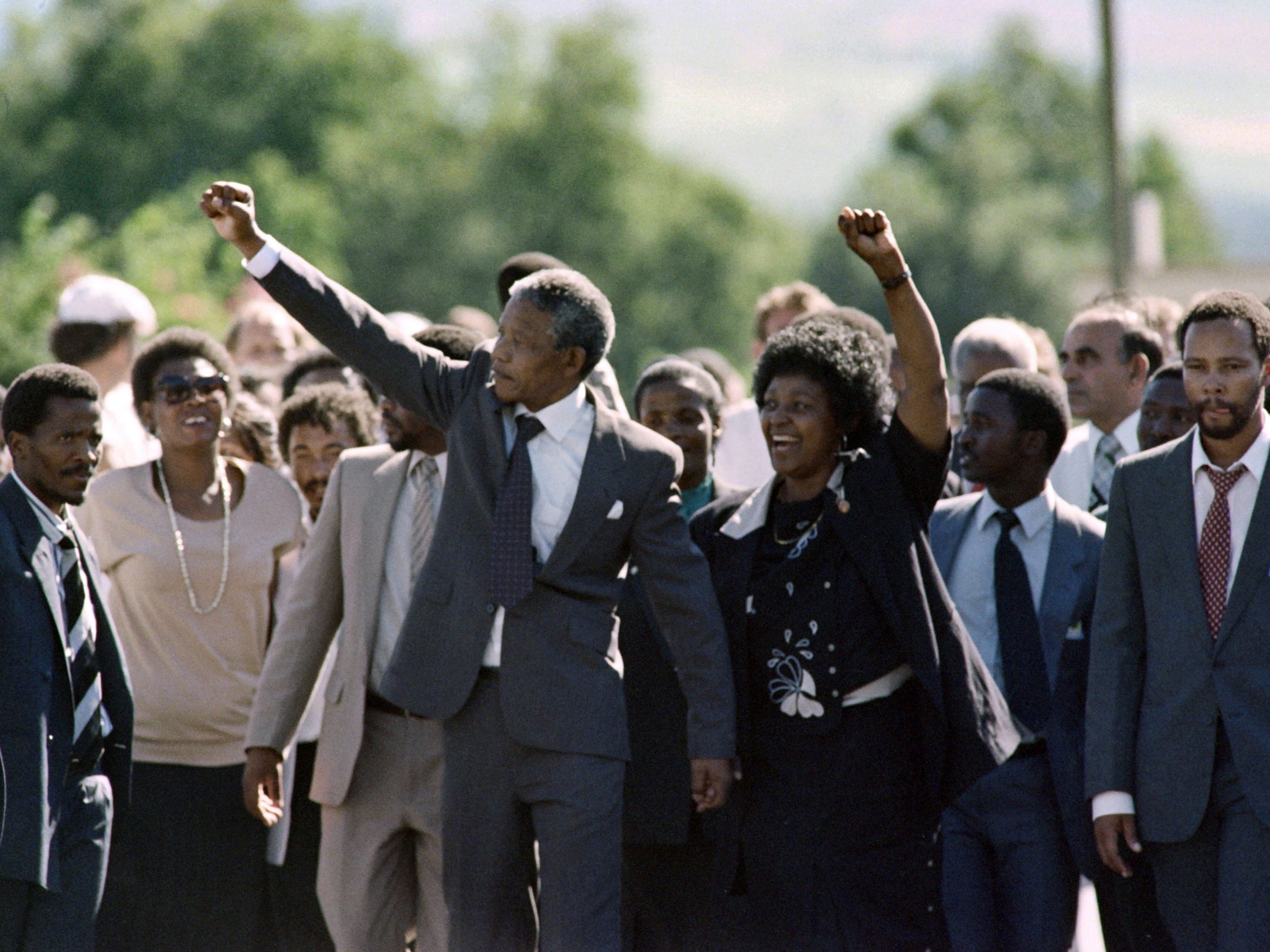Do we need more working-class foreign correspondents?
A career in journalism is often beyond the reach of people from working-class backgrounds – a foreign correspondent role even more so. But does it matter? Richard Hall investigates

Over the past few years, the British media has been forced to reflect more than once on how it was caught off guard by some seismic event that it didn’t see coming. Brexit was one of them, the Grenfell Tower tragedy was another. In both cases, there seemed to be a blindness to the underlying causes behind them. A similar realisation took place in the US in the aftermath of Donald Trump’s election victory.
Jon Snow, the veteran Channel 4 News broadcaster, summed it up best when he confessed to feeling “disconnected and frustrated” in the aftermath of the deadly tower block fire, which residents had long warned was inevitable. “In increasingly fractured Britain, we in the media are comfortably with the elite, with little awareness, contact or connection with those not of the elite,” he said.
It was a unusually frank admission, and made a point that we all forget more often that we care to admit: there are things we cannot see because we have not lived them.
Study after study tells us that the British media is dominated by the wealthy. A 2016 government report on social mobility in the UK found that just 11 per cent of journalists come from working-class backgrounds, compared with 60 per cent of the population. The Sutton Trust found the same year that 51 per cent of the country’s leading journalists attended fee-charging schools, while only 7 per cent of the population did.
Those numbers are likely to have gone up and down, but changes in the industry over time have brought about a shift in who brings us the news. Decades ago, an aspiring journalist from a working-class background might make it to a national newspaper by starting out at a regional and working his or her way up. Today, the local news industry is a shadow of its former self, and that path is much rarer.
Most media organisations now look for a Masters degree in journalism, which can cost more than £10,000 in the UK, or closer to £50,000 for a top journalism school in the US. Newspapers might offer internships as a way in, but that usually requires working for free while paying an exorbitant amount on rent to live in London.
While we’ve been very good at looking at diversity in lots of different ways, I think class is one of the last bastions
Some news organisations have schemes to try to widen the field. The Independent, for example, has an editorial apprenticeship scheme for non-graduates. But for the most part, a career in journalism is largely inaccessible to people from working-class backgrounds. We are left with newsrooms that do not represent the society that they are supposed to serve, and a media that cannot hear voices different to their own.
As a foreign correspondent, I have often asked myself whether the same applies to how we report on the rest of the world. Does class matter when reporting on an environment so different to our own? Do we need more working-class foreign correspondents?
* * *
If you ask someone who does the job what it takes to be a correspondent, they will often mention a few of the following: languages, an understanding of the country you want to cover, grit, determination, bravery, the ability to listen. All of which are essential, but they will often leave out one of the most important requirements: money.
In an era of shrinking budgets, international coverage has been particularly hard hit. Because of the costs associated with training and sending a correspondent from the UK, editors tend to hire correspondents already out in the field, based on their proven track record as a freelancer. No one should doubt the work ethic and talent of anyone who manages to make that work, but in most cases it requires having significant financial support. You need the funds to fly to another country, pay rent, live without an income for months, then deal with impossibly slow payments and meagre freelance rates. That can add up to thousands of pounds just to get going.

“There are fewer foreign bureaus these days, so they are relying on stringers, and self-starters,” says Roy Greenslade, a media commentator and journalism professor at City University in London. “If you want to go off by yourself you’re going to need financial backing, and that suggests you come from a well-heeled background.”
The idea that newsrooms should be more socioeconomically diverse is not so controversial, even if there has been little progress made in fixing it. But the foreign desk often exists in a vacuum in that regard.
Greenslade is a professor at the UK’s top journalism school and sees hundreds of students every year trying to make it into the business. As someone who came from a working-class background himself, and worked for decades in the British media, he has written perhaps more than anyone else on the importance of improving diversity in journalism. As he sees it, though, the role of an international reporter requires a very specific set of skills, which trump concerns over economic background.
“I don’t think it matters at all,” he says. “What you need as a foreign correspondent is language skills, you need to be academically intelligent to understand the politics and social life of the country, so you’re looking to well educated people. You’re going to be drawing on the well of middle classes and not the working class.”
Besides, he adds, “there just aren’t people queuing up in council estates in Britain to go and work in Beirut”.
That may be true, but should we accept that reporting on the world remains a job only for the well-off? Is the idea of a career in international reporting so unlikely to someone not from that background that they don't even attempt it? As someone who made that journey from a council estate in Britain to go and work in Beirut, I’ve thought a lot about how people in working-class communities see the world, and the role they play in it.

People often talk about how these communities feel disconnected from a globalised world, but is it any surprise when they are completely excluded from the debate about it? How often do we consider the way that exclusion shapes their opinions of issues such as Europe, the global economy, Britain’s foreign policy, immigration and refugees?
There hasn’t been the same research on the socioeconomic backgrounds of foreign correspondents as there has on UK-based journalists, but anecdotally the problem appears to be far worse abroad than it is back home.
Even for the few who have managed to make a go of it, there is a sense that the odds are stacked against them. For this piece I spoke to a number of journalists from working-class backgrounds currently freelancing in various places around the world. A common complaint was that they lacked the time and resources to chase bigger stories that might land them a job because they always had to worry about paying the bills. The lack of a safety net, in the form of parental support or other income, can be a barrier to good work, and forbids risk-taking. Freelancing is a tough gig for everyone, but Jarvis Cocker’s famous line – “If you called your dad he could stop it all” – applies to some more than others.
For the reasons Greenslade notes, newspapers perhaps don’t have the time or money to seek out and nurture diverse talent. I know from my own time working on a foreign desk that the day was often a frenzy of phone calls and grasping for a writer in the right place at the right time.
Bigger organisations such as the BBC do have the resources, and have made some progress in recent years. Jon Williams, former head of world news at the BBC and later ABC News, says he has made a point throughout his career to hire staff from a variety of different backgrounds, and he thinks it shows in the stories.
There are two different frames of reference, one of which is a choice of story, the other is how you then tell the story. If you have a different type of life experience you may tell the story in a rather different way
“There are two different frames of reference, one of which is a choice of story, the other is how you then tell the story. If you have a different type of life experience you may tell the story in a rather different way,” he says.
“That means having more people who look and sound like the audience, so that they don’t only come from Oxford and Cambridge and only went to private schools, but have regional accents. It’s important to understand the sorts of stories that are going to connect with all sorts. So I do think it matters.”
Quentin Sommerville, a BBC’s Middle East correspondent, is one of those regional-accented reporters. He started at the BBC back in 2001, when he was 29. He grew up in a working-class family in Scotland, and was the first of his family to go to university. Today, he is based in Beirut.

“It’s increasingly becoming a posh kids’ game,” he says. “But I’ve seen it all through my professional career. I remember arriving at the BBC and thinking: ‘All these chaps seem to have gone to the same colleges at Oxford and Cambridge. What a coincidence!’
“While we’ve been very good at looking at diversity in lots of different ways, I think class is one of the last bastions,” he adds
You need to understand what poverty is, and how people struggle with adversity. If you don’t have an understanding of that adversity, how are you going to be able to understand that when you see it overseas?
Another correspondent told me they had never met someone from Eton before they arrived in Cairo, where they found several in a small group of journalists.
Sommervile says the same considerations we make about audience and representation when we think of domestic news also apply to how we report on the world.
“I think if you’re trying to reach your audience, you need to understand their struggles, their attitudes, you need to understand their suffering and the challenges they face. That’s true if you’re reporting on UK stories, but it’s also true for foreign reporting,” he says.
“You need to understand what poverty is, and you need to understand how people struggle with adversity. If you don’t have an understanding of that adversity around you, whether you’ve seen it through poverty or crime or violence or social ills, how are you going to be able to understand that when you see it overseas? And be able to distill it and make it relatable?”
Perhaps that kind of background can also teach skills that can't be learned in a classroom. Linda Taylor, The Independent’s production editor, says her working-class background gave her a grounding that helped her when she reported from South Africa in the late 1980s.
“My London comprehensive school taught me survival skills that helped when I was in townships, or in other hostile and aggressive situations,” she says. “I learnt how to handle myself.”
* * *
If part of being a good journalist is recognising the limitations of our own experiences, then there are surely limits to what a correspondent of any social background can understand.

All of us need to check our privilege, and this is where I check mine. As a white British man, growing up in the fifth-largest economy in the world, I have been afforded opportunities people in other parts of the world could never dream of. And I would be remiss not to mention the other gaping inequalities in the media landscape, of which I am not qualified to write about. A survey by City University in 2016 found that the British journalism industry was 94 per cent white and 54 per cent male, and that all other ethnic groups were significantly underrepresented. The same survey also found that women were paid less than their male counterparts, and others have found that women are severely underrepresented.
There is also a question of how lived experience translates from one country to another. Experience of poverty is one thing, but what about experience of extreme poverty – the kind that correspondents are often sent to cover in far-off places? What about experience of culture? And of life-altering catastrophes such as war and displacement?
Correspondents are further away from the old colonial or Commonwealth model of white males spending a career moving from assignment to assignment. They are more likely to be female, younger and nationals of the country they work in
This is something news organisations are thinking about more and more. A landmark 2010 report by the Reuters Institute for the Study of Journalism that looked at the changing role of foreign correspondents made some interesting findings in this regard.
Sean Maguire, Reuters’ editor of political and general news at the time, said his agency was shifting “further away from the old colonial or Commonwealth model of white males spending a career moving from assignment to assignment. Staff is much more likely to be female, younger and nationals of the country they work in.”
“Apart from cost, issues of equity and fairness in employment are driving that shift. Additionally, news consumers ... demand higher levels of instant expertise in reporting – to deliver that you need correspondents who speak a local language, are immersed in local political and economic life and have contacts developed over years,” he was quoted as saying in the 2010 report.
Maguire’s comments get to the heart of a debate that has taken place in the industry for some time. Why do we continue to send Brits to report on a country when a local who has lived there all their life could do it better? And if we are concerned with the disconnectedness of journalists from certain stories, shouldn’t we look to the people who have lived them?
This is a compelling argument. Agencies have long used local journalists to report to a global audience, and more news organisations are moving that way. Here in Beirut, the biggest bureaus are made up of teams of local and international staff: The New York Times, The Washington Post and The Wall Street Journal all have a mix. And it shows in the work.
Hwaida Saad, a Lebanese reporter with the New York Times team in Beirut, is a good example. She has been central to the newspaper’s coverage of the Syrian conflict, building up a network of contacts in the country that came to form the foundation of its reporting.
She says: “Hiring local reporters and news assistants in the region can definitely add more benefit, given that locals not only speak the language but have a good understanding of the community, its culture and its complexities.
“I was so lucky to work with people who appreciated my work,” she says, but adds that many local hires are often paid less and aren’t given sufficient training.
In the end, she argues it’s about finding the right combination.
“Building a diverse team enriches the work,” she says, “but diversity means more than having locals work with internationals – it’s in how you mix people of different genders, ethnicities and backgrounds.”
Still, for those news organisations without the budget to hire more than one person, the dilemma remains. Many editors still view the role of a correspondent as a bridge from one country to another. Richard Sambrook, former director of BBC News and author of the Reuters report, notes: “For national newspapers or broadcasters, an understanding of the readership or audience ‘at home’ is seen as crucial to much international coverage. And most national news organisations still believe an expatriate correspondent is best placed to do that.”
If that is the case, shouldn’t we strive for those expatriate correspondents to reflect the audience at home? If we don’t, we risk closing off the world to an entire section of society at a time when they are being exposed to it more than ever before.
Join our commenting forum
Join thought-provoking conversations, follow other Independent readers and see their replies
Comments